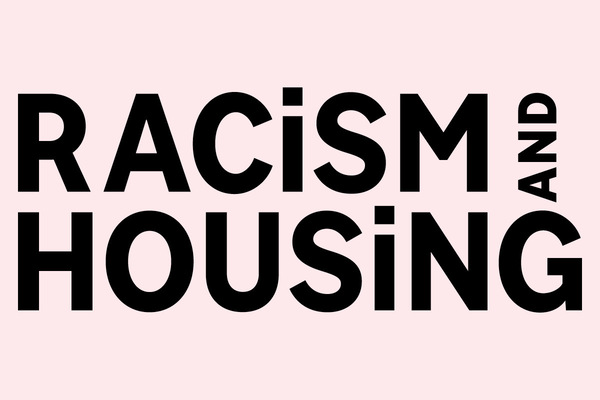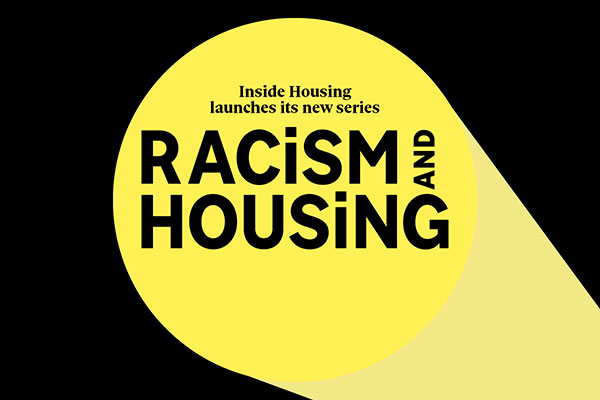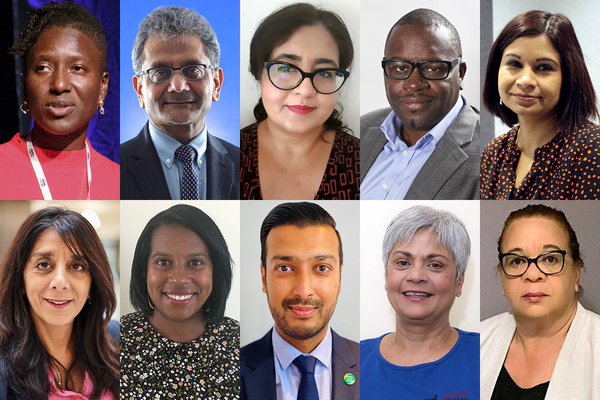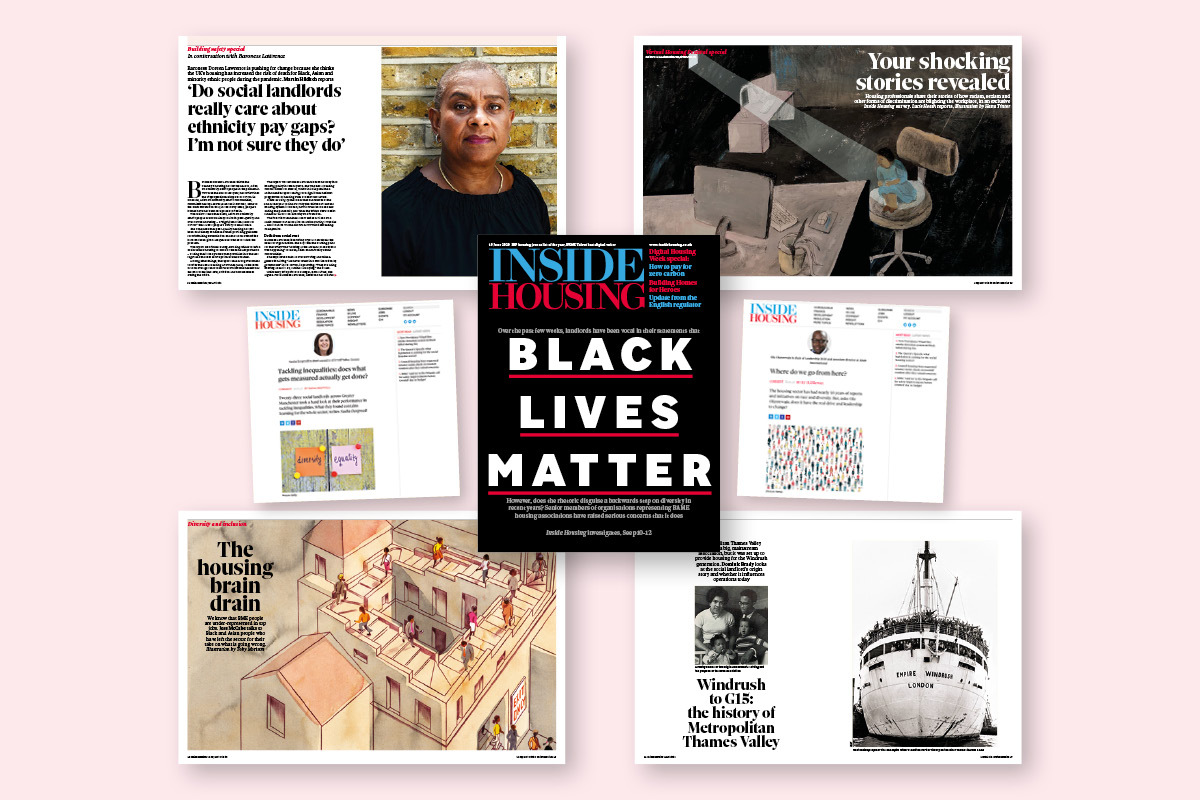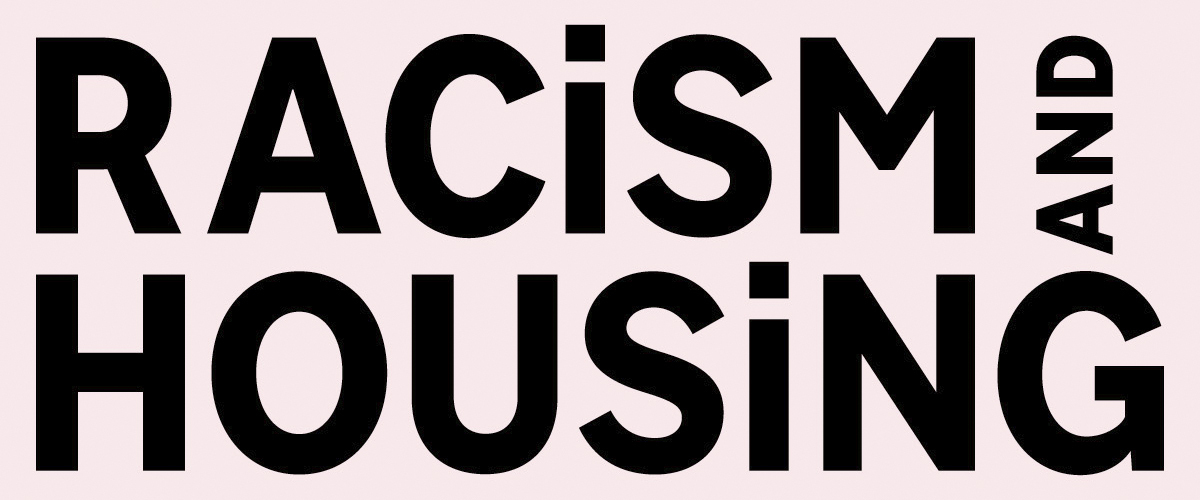You are viewing 1 of your 1 free articles
Inside Housing launches new series on racism and housing

Inside Housing is launching a new series of articles looking at racism and housing.
The new series follows on from the creation of its race and housing editorial panel, which was set up almost a year ago.
The aim of the panel was to provide Inside Housing with ideas for stories and research, and to challenge and inform how the publication approaches its work.
The panel has already fed into numerous articles – and recent discussions have focused on both the response to the recent Sewell report and the need for a series of articles looking at how racism and race inequality intersect with the housing world.
The first article in this series is published today, looking at how race affects the likelihood that people will live in damp properties or fuel poverty.
The race and housing editorial panel’s response to the Sewell report is published in full below. Elsewhere today we publish a comment piece by panel member Jitinder Takhar, chief executive of Homes for Lambeth, discussing how her career has been impacted by racism and a clear call for sector leaders to take action.
And we also take a look at the work the panel has contributed so far.
Further information about the racism and housing series is published in Inside Housing editor Martin Hilditch’s leader.
Please get in touch if you have any ideas for investigations, analysis or comment pieces that could run as part of the campaign.
And here is the panel’s response, in full, to the Sewell report.
The race and housing editorial panel’s response to the Sewell Report
In March 2021, the Commission on Race and Ethnic Disparities published the Sewell Report. The Inside Housing race and housing editorial panel wants to join the many others who have spoken up to express disappointment and disbelief at this report, and to state its view that institutional racism does exist in the UK, as accepted by previous commissions – Macpherson, Lammy, Marmot and Williams. As such, the report fails to reflect the lived experiences of Black, Asian and minority ethnic people in the UK.
The report has, at this point, already been criticised heavily, including from within the housing sector in statements by BME National and Shelter, as well as others such as the Runnymede Trust. The panel shares many of these criticisms.
The Sewell Report did not focus on housing, and barely mentioned housing except in terms of discussing homeownership. This was a missed opportunity, because as the sector well knows, access to a decent home you can afford is essential in giving you the stability to put down roots, get a decent job, and for children to succeed in their education and to fulfil their aspirations.
Lack of decent, affordable housing – which is a problem across the UK, but disproportionately for Black, Asian and minority ethnic people – plays a crucial role in why opportunities are lost and aspirations are unfulfilled. The report itself acknowledged, although it did not explore the implications of this, that “ethnic minority Britons are more likely to live in persistent poverty and overcrowded housing”.
It matters if policy – including housing policy – is not designed with this in mind. Examples of this include a focus by government and the sector on building new homes for homeownership, which are often out of reach of minority ethnic communities due to economic and wealth disparities in the UK.
“We ask the sector to ask itself questions about how and what it prioritises in using its resources in addressing those in greatest housing need. What actions are your organisations taking to address racism and disparities faced by minority ethnic residents living in your communities and in your homes, and staff working in your organisations?”
During the pandemic, another example has occurred: the focus of local authority funding on rough sleepers. This investment was necessary and welcome. However, funds were not provided for other groups of homeless people, such as families and individuals living in temporary accommodation with shared facilities, even though this clearly put them at risk of COVID-19. One in three homeless households are from ethnic minority backgrounds compared with one in seven from the general population.
The panel wishes to address this statement not to the government or the Sewell commission, but to the housing sector. The report was a missed opportunity. It failed to take the opportunity to address the challenges to co-design a new way forward, and think and act differently in partnership with those who can instigate change.
However, this is something the housing sector can take action on, regardless of the disappointments of the report. Institutional racism is a significant issue that our tenants and staff from minority ethnic backgrounds face. It contributes to poverty among people from those backgrounds and inhibits their ability to meet their aspirations.
We ask the sector to ask itself questions about how and what it prioritises in using its resources in addressing those in greatest housing need. What actions are your organisations taking to address racism and disparities faced by minority ethnic residents living in your communities and in your homes, and staff working in your organisations?
Are investments by your organisations directed at areas and communities in most housing need? Have you asked at board and executive level: “Why are minority ethnic people over-represented in homelessness statistics, in overcrowded housing, and in precarious private rented sector accommodation?”
To look within, what is the ethnicity pay gap in your organisation, and will you commit to publishing it? What is the break-down by ethnicity of staff at different grades in your organisation and will you publish this?
Who are the race and housing editorial panel?
- Adunni Adams, head of delivery at Catalyst
- Farida Aslam, senior neighbourhoods manager (services to older people and community investment) at Vale of Glamorgan Council
- Cym D’Souza, chief executive of Arawak Walton Housing Association, and chair of BME National
- Sian Edwards, temporary accommodation team lead (PLS and hostels) at Kingston Council
- Lorri Holding, head of customer services at Warrington Housing Association
- Shahi Islam, head of affordable housing grants at Homes England
- Dilip Kavi, chief executive of PA Housing
- Olu Olanrewaju, associate director of Altair International
- Jahanara Rajkoomar, director of community investment at Metropolitan Thames Valley
- Jitinder Takhar, chief executive of Homes for Lambeth
- Rosalind Ugwu, independent consultant
What Inside Housing has been doing
On 26 May last year in Minneapolis, George Floyd was killed by police officer Derek Chauvin. What followed, we all know – a fresh wave of Black Lives Matter protests in Minneapolis, across the United States, and then, eventually, the world. The events caused a degree of soul-searching that went well beyond police violence. Social landlords in this country also confronted their role, as landlords and employers.
Inside Housing’s editorial team also felt we needed to change. Although we have previously run investigations on racism, and particularly examined the lack of diversity in top housing jobs, we knew there was more to do. Also, as a magazine where almost the whole editorial team was white, we knew that self-examination of this issue wasn’t enough.
That led us to set up our race and housing editorial panel. It consists of 11 Black, Asian and minority ethnic housing professionals (see above), from roles across the sector. Since August 2020, the board has been holding regular meetings across Inside Housing’s editorial staff, in a process we found has illuminated and strengthened our output in ways we could not have foreseen.
Some of this has made itself felt in stories that originated in ideas from the editorial panel. To give just one example of many, this led us to interview staff who used to work in housing, but left to work in other sectors, often due to racism they experienced, or lack of opportunity to progress within social housing.
The editorial panel has also led us to develop story ideas in a different way and have different conversations internally about how we work.
The next stage of this, partly in response to the Sewell Report’s failures, is to commit to a new series called Racism and Housing. This will tackle how racism and race inequality interact with the social housing world head-on. The first story looks at the dire statistics on race inequality and damp, mouldy housing, fuel poverty and people living in non-decent homes.
Damp, non-decent housing is at the top of the agenda for the sector at the moment, yet these issues are rarely talked about in terms of race, despite the clear and shocking statistics detailed in the article.
As part of this series, we will also be reinvigorating our diversity survey, which looks at who holds the top housing jobs, and relaunching it as an annual survey that will provide a benchmark on how the sector is doing on this crucial issue.
If you have any ideas for stories that we should be covering in this series, please get in touch at jess.mccabe@insidehousing.co.uk
Racism and Housing series
Inside Housing’s Racism and Housing series aims to investigate how race inequality and racism interact with and impact on housing – for tenants, for staff working in housing, and for organisations. It has been launched a year since George Floyd’s murder prompted a huge global wave of Black Lives Matter activism.
We will be publishing monthly investigations that look at racism, race and housing, both in terms of what is going wrong, and what actions that sector is taking to address this.
If you have an idea for a story relating to this campaign, please contact deputy editor (features) Jess McCabe, at jess.mccabe@insidehousing.co.uk.
The stories published so far include:
‘We had to abandon everything’: the story of Chan Kataria and the flight of the Ugandan Asians
Race and the cost of living crisis: the impact on social housing tenants
How to create an inclusive housing association: a conversation with Bal Kang
How Cardiff landlords are tackling under-representation
Why has diversity progress stalled?
How racism impacts homeless people
How planning is failing to address race inequality in housing
Race and allocation: who are the new tenants getting social housing, and is it equitable?
How to increase representation of ethnic minorities in senior roles
How race impacts on people’s likelihood of living in a damp home or experiencing fuel poverty
